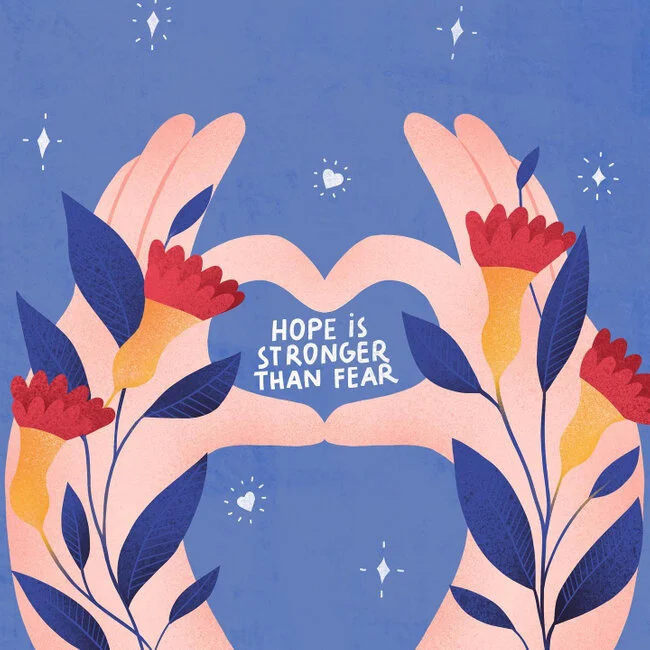How I discovered the healing power of being in community
How Like Minded Came to be.
Hope is stronger than fear
Here is the scenario: Jimmy has just begun therapy with me. He was referred to me by his general practitioner to work on “hand weakness and spasticity.” He arrived at his first session frustrated and skeptical. It has been three years since his stroke and he does not “think it is possible” for his hand to work. If he doesn’t “see results in three months” he is “quitting therapy permanently.”
He has thought out his resistance to change and has a strong case for how to stay stuck in his current situation.
Our first session is a DISASTER, I am frustrated with his insistence on doing the same thing and resistance to my (not so gentle) direction. He is hell bent on proving that occupational therapy doesn’t help and I am hell bent on proving him wrong. To make matters worse, he doesn’t have great family support. They encourage him to go to therapy, but that is all he does 45 minutes a week, two times a week. Every moment after that he is taken care of lovingly by his wife and son.
Jimmy’s friends did not stick around after his stroke and he doesn’t know anyone who has been in his shoes. He tried a stroke group once and found it dominated by one very vocal, sad, and distressed survivor. He felt alone. He felt hopeless and irritated that I would suggest life be any different than the tsunami of difficulty he was experiencing day in and day out. Suggesting exercises or brain-hacks to make life easier only furthered Jimmy’s belief that I did not understand his situation. The idea that life can be both very hard and still hold hope did not ring true for him.
Jimmy would keep showing up for several weeks and we would have the same frustrating sessions. He would scoff at the “playdough”, putty, that I was prescribing.
He would complain about the weights not being heavy enough, question my credentials, complain about having to stand, sit, talk, move etc. It was painful and I began to DREAD his coming sessions.
One day, Jimmy was able to pick up a small coin and place it gingerly into a cup. I was surprised and super excited. Finally, a huge breakthrough! He shrugged and said “I should be able to do this: any two year old can do this!” Our sessions were private, but, at that exact moment, another survivor who was finishing up physical therapy wheeled by. She was crying. She told him how wonderful that first use of her hand had felt and how she learned to zip her jacket today.
Jimmy was completely still. He didn’t say anything the rest of the session.
Jimmy and that woman began to meet for coffee. She explained how she listens to several brain injury podcasts and has listened to some helpful books on audiobooks. They would sit and do their OT and PT homework together.
After talking with his friend, Jimmy, started seeing a mental health professional and he began to routinely work on his mood and his hand exercises.
In occupational therapy, I barely recognized Jimmy. He wasn’t who I had met four weeks ago. He was vibrant and engaging. He wanted to know why I chose this specific exercise not to prove to me that it wouldn’t work, but to see how he could replicate it at home. Jimmy brought in youtube videos of other survivors and started following certain rehabilitation professionals to help him at home. He practiced everyday and our sessions were engaging and fruitful.
He became the major driving force of his recovery. Soon I had to prepare extra for his sessions not to make them accessible enough, but to make them challenging enough for him. Jimmy was discharged in a year and a half, but he never stopped working on his recovery. He eventually re-learned to play the guitar, write with his dominant more affected hand, and return to his career.
It was through the hardship of working with Jimmy that the idea for Like Minded came to life. Seeing his eyes open through connecting with a fellow survivor proved hope can move mountains.
It just took one comment from a fellow survivor to open his eyes to the possibility of hope. It took the lived experience of another person to break down the great wall of china that had fortified his mind and spirit from change. He needed someone else to help him do the scariest thing a survivor can do: try.
If you need help trying, and we all do: try Like Minded. You will not recover in a day. You will not change in a day, but you CAN begin to feel hope forming in a day. You CAN begin your change process in a day. You CAN understand in a deep way that you are not alone in a day.

